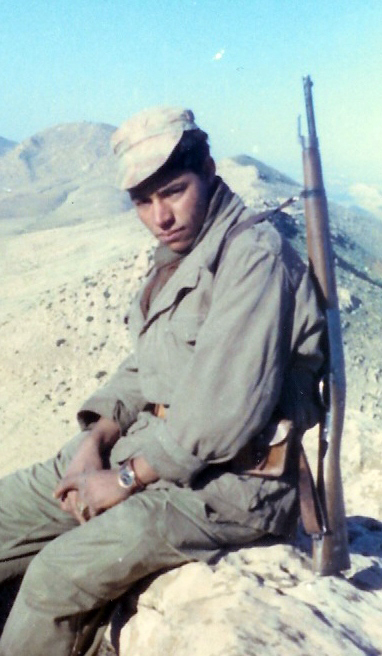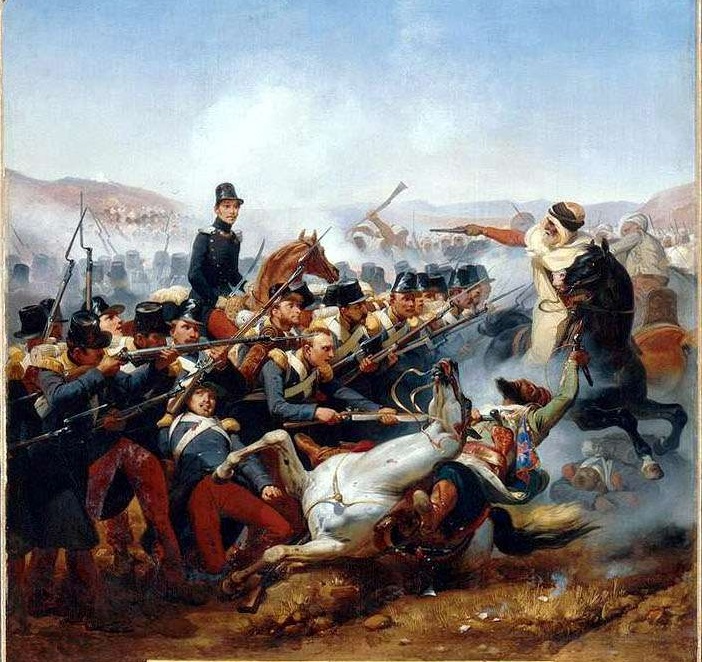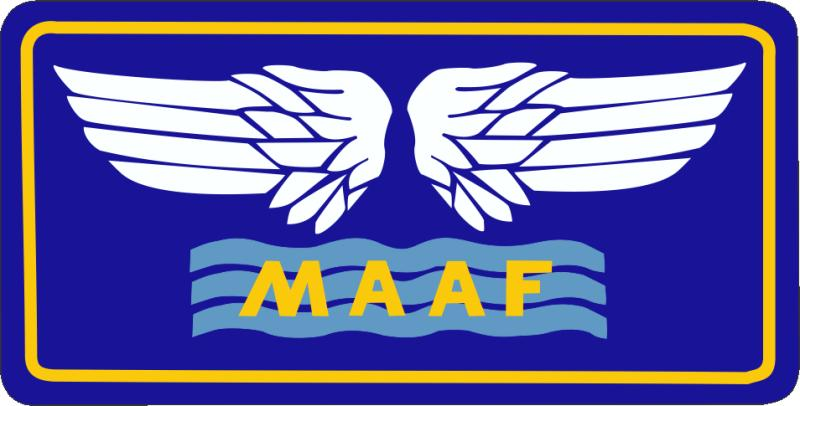|
Harki
''Harki'' (adjective from the Algerian Arabic "''ḥarka''", standard Arabic "''ḥaraka''" �ركة "war party" or "movement", i.e., a group of volunteer militia) is the generic term for native Muslim Algerians who served as auxiliaries alongside the French Army during the Algerian War from 1954 to 1962. The word sometimes applies to all Algerian Muslims (thus including civilians) who supported French Algeria during the war. The motives for enlisting were mixed. They were regarded as traitors in independent Algeria and thousands of them were reportedly killed after the war in reprisals, despite the Évian Accords ceasefire and amnesty stipulations. President Charles de Gaulle controversially made the decision to not give the Harkis sanctuary in France, viewing them as "soldiers of fortune" who should be discharged as soon as possible. In France the term can apply to ''Franco-musulmans rapatriés'' (repatriated French Muslims) living in the country since 1962 - and to their metr ... [...More Info...] [...Related Items...] OR: [Wikipedia] [Google] [Baidu] |
Algerian War
The Algerian War (also known as the Algerian Revolution or the Algerian War of Independence) ''; '' (and sometimes in Algeria as the ''War of 1 November'') was an armed conflict between France and the Algerian National Liberation Front (Algeria), National Liberation Front (FLN) from 1954 to 1962, which led to Algeria winning its independence from France. * * * * * * An important decolonization war, it was a complex conflict characterized by guerrilla warfare and war crimes. The conflict also became a civil war between the different communities and within the communities. The war took place mainly on the territory of Algeria, with repercussions in metropolitan France. Effectively started by members of the FLN on 1 November 1954, during the ("Red All Saints' Day"), the conflict led to serious political crises in France, causing the fall of the Fourth French Republic, Fourth Republic (1946–58), to be replaced by the Fifth French Republic, Fifth Republic with a strengthened pres ... [...More Info...] [...Related Items...] OR: [Wikipedia] [Google] [Baidu] |
Pieds-Noirs
The (; ; : ) are an ethno-cultural group of people of French and other European descent who were born in Algeria during the period of French colonial rule from 1830 to 1962. Many of them departed for mainland France during and after the war by which Algeria gained its independence in 1962. From the French invasion on 18 June 1830 to its independence, Algeria was administratively part of France; its ethnic European population were simply called Algerians or (colonists). The Muslim people of Algeria were called Arabs, Muslims or indigènes. The term came into common use shortly before the end of the Algerian War in 1962. As of the last census in French-ruled Algeria, taken on 1 June 1960, there were 1,050,000 non-Muslim civilians, some 10 percent of the population. Most were Catholic and of European descent, but their population included around 130,000 indigenous Algerian Jews who were granted French citizenship through the Crémieux Decree and were viewed as a part o ... [...More Info...] [...Related Items...] OR: [Wikipedia] [Google] [Baidu] |
French Algeria
French Algeria ( until 1839, then afterwards; unofficially ; ), also known as Colonial Algeria, was the period of History of Algeria, Algerian history when the country was a colony and later an integral part of France. French rule lasted until the end of the Algerian War which resulted in Algeria's Independence Day (Algeria), gaining independence on 5 July 1962. The French conquest of Algeria began in 1830 with the Invasion of Algiers (1830), invasion of Algiers which toppled the Regency of Algiers, though Algeria was not fully conquered and Pacification of Algeria, pacified until 1903. It is estimated that by 1875, approximately 825,000 indigenous Algerians were killed. Various scholars describe the French conquest as genocide. Algeria was ruled as a French colony, colony from 1830 to 1848, and then as multiple Departments of France#Departments of Algeria (Départements d'Algérie), departments, an integral part of France, with the implementing of the French Constitution of 18 ... [...More Info...] [...Related Items...] OR: [Wikipedia] [Google] [Baidu] |
Évian Accords
The Évian Accords were a set of declarations between the French Government and the Provisional Government of the Algerian Republic on 18 March 1962 in Évian-les-Bains which outlined the agreements for Algeria's Independence alongside cooperation with France. The Accords consisted of five chapters which detailed the guarantees and principals of this Independence. The Accords ended the Algerian War with a cease-fire that was declared on the 19th March 1962, and effectively formalised the status of Algeria as an independent nation. Historical Context The start of the Algerian War in 1954 emerged from a growing Algerian nationalist movement. The population was asked to fight in the Second World War alongside the French. In exchange for their duty, they demanded more political and economic rights which were refused. The tensions between the two parties rose when the National Liberation Front (FLN) called for independence in their Declaration of 1 November 1954. The French Gov ... [...More Info...] [...Related Items...] OR: [Wikipedia] [Google] [Baidu] |
Franco-Prussian War
The Franco-Prussian War or Franco-German War, often referred to in France as the War of 1870, was a conflict between the Second French Empire and the North German Confederation led by the Kingdom of Prussia. Lasting from 19 July 1870 to 28 January 1871, the conflict was caused primarily by France's determination to reassert its dominant position in continental Europe, which appeared in question following the decisive Austro-Prussian War, Prussian victory over Austria in 1866. According to some historians, Prussian chancellor Otto von Bismarck deliberately provoked the French into declaring war on Prussia in order to induce four independent southern German states—Grand Duchy of Baden, Baden, Kingdom of Württemberg, Württemberg, Kingdom of Bavaria, Bavaria and Grand Duchy of Hesse, Hesse-Darmstadt—to join the North German Confederation. Other historians contend that Bismarck exploited the circumstances as they unfolded. All agree that Bismarck recognized the potential for new ... [...More Info...] [...Related Items...] OR: [Wikipedia] [Google] [Baidu] |
World War I
World War I or the First World War (28 July 1914 – 11 November 1918), also known as the Great War, was a World war, global conflict between two coalitions: the Allies of World War I, Allies (or Entente) and the Central Powers. Fighting took place mainly in European theatre of World War I, Europe and the Middle Eastern theatre of World War I, Middle East, as well as in parts of African theatre of World War I, Africa and the Asian and Pacific theatre of World War I, Asia-Pacific, and in Europe was characterised by trench warfare; the widespread use of Artillery of World War I, artillery, machine guns, and Chemical weapons in World War I, chemical weapons (gas); and the introductions of Tanks in World War I, tanks and Aviation in World War I, aircraft. World War I was one of the List of wars by death toll, deadliest conflicts in history, resulting in an estimated World War I casualties, 10 million military dead and more than 20 million wounded, plus some 10 million civilian de ... [...More Info...] [...Related Items...] OR: [Wikipedia] [Google] [Baidu] |
Imperial German Army
The Imperial German Army (1871–1919), officially referred to as the German Army (), was the unified ground and air force of the German Empire. It was established in 1871 with the political unification of Germany under the leadership of Kingdom of Prussia, Prussia, and was dissolved in 1919, after the defeat of the German Empire in World War I (1914–1918). In the Federal Republic of Germany, the term refers to the German Army, the land component of the . Formation and name The states that made up the German Empire contributed their armies; within the German Confederation, formed after the Napoleonic Wars, each state was responsible for maintaining certain units to be put at the disposal of the Confederation in case of conflict. When operating together, the units were known as the German Federal Army, Federal Army (). The Federal Army system functioned during List of wars: 1800–1899, various conflicts of the 19th century, such as the First Schleswig War from 1848 to 1852. ... [...More Info...] [...Related Items...] OR: [Wikipedia] [Google] [Baidu] |
World War II
World War II or the Second World War (1 September 1939 – 2 September 1945) was a World war, global conflict between two coalitions: the Allies of World War II, Allies and the Axis powers. World War II by country, Nearly all of the world's countries participated, with many nations mobilising all resources in pursuit of total war. Tanks in World War II, Tanks and Air warfare of World War II, aircraft played major roles, enabling the strategic bombing of cities and delivery of the Atomic bombings of Hiroshima and Nagasaki, first and only nuclear weapons ever used in war. World War II is the List of wars by death toll, deadliest conflict in history, causing World War II casualties, the death of 70 to 85 million people, more than half of whom were civilians. Millions died in genocides, including the Holocaust, and by massacres, starvation, and disease. After the Allied victory, Allied-occupied Germany, Germany, Allied-occupied Austria, Austria, Occupation of Japan, Japan, a ... [...More Info...] [...Related Items...] OR: [Wikipedia] [Google] [Baidu] |
Free French Army
Free France () was a resistance government claiming to be the legitimate government of France following the dissolution of the Third Republic during World War II. Led by General , Free France was established as a government-in-exile in London in June 1940 after the Fall of France to Nazi Germany. It joined the Allied nations in fighting Axis forces with the Free French Forces (), supported the resistance in Nazi-occupied France, known as the French Forces of the Interior, and gained strategic footholds in several French colonies in Africa. Following the defeat of the Third Republic by Nazi Germany, Marshal Philippe Pétain led efforts to negotiate an armistice and established a German puppet state known as Vichy France. Opposed to the idea of an armistice, de Gaulle fled to Britain and from there broadcast the Appeal of 18 June () exhorting the French people to resist the Nazis and join the Free French Forces. On 27 October 1940, the Empire Defense Council ()—later th ... [...More Info...] [...Related Items...] OR: [Wikipedia] [Google] [Baidu] |
Operation Dragoon
Operation Dragoon (initially Operation Anvil), known as Débarquement de Provence in French ("Provence Landing"), was the code name for the landing operation of the Allies of World War II, Allied invasion of Provence (Southern France) on 15August 1944. Although initially designed to be executed in conjunction with Operation Overlord, the June 1944 Normandy landings, Allied landing in Normandy, the lack of enough resources led to the cancellation of the second landing. By July 1944 the landing was reconsidered, as the clogged-up ports in Normandy did not have the capacity adequately to supply the Allied forces. Concurrently, the high command of the French Liberation Army pushed for a revival of the operation, which would involve large numbers of French troops. As a result, the operation was finally approved in July to be executed in August. The invasion sought to secure the vital ports on the French Mediterranean coast and increase pressure on the German forces by opening another ... [...More Info...] [...Related Items...] OR: [Wikipedia] [Google] [Baidu] |
Skirmisher
Skirmishers are light infantry or light cavalry soldiers deployed as a vanguard, flank guard or rearguard to screen a tactical position or a larger body of friendly troops from enemy advances. They may be deployed in a skirmish line, an irregular open formation that is much more spread out in depth and in breadth than a traditional line formation. Their purpose is to harass the enemy by engaging them in only light or sporadic combat to delay their movement, disrupt their attack, or weaken their morale. Such tactics are collectively called skirmishing. An engagement with only light, relatively indecisive combat is sometimes called a skirmish even if heavier troops are sometimes involved. Skirmishers can be either regular army units that are temporarily detached to perform skirmishing or specialty units that were specifically armed and trained for such low-level irregular warfare tactics. Light infantry, light cavalry (historically), and irregular units often specialize in ... [...More Info...] [...Related Items...] OR: [Wikipedia] [Google] [Baidu] |





